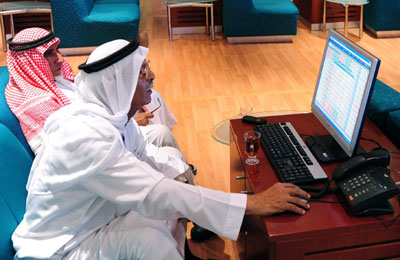
Expansionary budget to support Saudi growth
Riyadh, January 2, 2013
Saudi Arabia's expansionary 2013 budget based on a conservative oil price will support another year of healthy economic growth for the kingdom, Fitch Ratings said in a report.
However, overall growth could slow due to a decline in oil production that was already evident in recent months, it said.
The FY13 (December 31, 2012 to December 30, 2013) budget unveiled on December 29 projects record spending of $219 billion (34 per cent of GDP), up by almost 20 per cent on the 2012 budget.
Budgeted capital spending is 28 per cent higher than in 2012, though the government has struggled to achieve its capital spending targets in recent years. Education and healthcare remain the focus of spending, accounting for 37 per cent of the total.
Defence and security tends to be the largest single item, constituting around one-third, but is not disclosed in the budget, the agency said.
Revenues are based on unstated oil price and production assumptions, with the former well below prevailing market prices. An 18 per cent jump in revenues is projected. With no new revenue-raising measures announced and little scope for higher oil revenues (Fitch anticipates Saudi production and prices will be lower in 2013 than 2012), the revenue projection appears less cautious than usual. However, actual revenues generally substantially exceed budget revenues (by an average of 82 per cent over the past five years) and should do so again in 2013.
A $2.4 billion (0.4 per cent of GDP) surplus is budgeted for 2013. Fitch expects a larger surplus, of 7.6 per cent of GDP. The budget is consistent with an oil price (Brent) of around $60 per barrel and production of 9.7 million barrels per day, compared with Fitch's forecast of an average $100 per barrel for Brent.
Spending is also expected to surpass the budgeted level; actual spending has exceeded budget by an average of 24 per cent over the past decade. With pension funds expected to post modest surpluses, the general government surplus is forecast at 8.3 per cent of GDP.
Fiscal performance in 2012 was strong. The central government surplus rose to 14.2 per cent of GDP, as greater oil production and high oil prices pushed total revenues to an all-time high. Spending growth slowed to 3 per cent, the lowest since 2002, though this followed a significant one-off spending package in 2011. In absolute terms spending is up by 43 per cent since 2009, it said.
Central government gross debt fell to 3.6 per cent of GDP at the end of 2012. With government deposits at the central bank rising in 2012 (data is available to end-October), Fitch estimates that the general government was a net creditor by 65 per cent of GDP, compared with an 'AA' median net debt position of 5 per cent of GDP.
Although the fiscal position is exceptionally strong, it is heavily dependent on oil revenues (around 90 per cent of total revenues) and the breakeven oil price needed to balance revenues with actual spending has risen in recent years. Fitch projects that the breakeven oil price will rise to $74/b in 2013 (assuming oil production of 9.7 million b/d) up from $68/b in 2012 and just over $40/b in 2008.
The budget statement provided the first official estimate of full year economic data for 2012. Real GDP growth was 6.8 per cent, down from a revised 8.5 per cent in 2011. Although a breakdown was not available, it appears this moderation was due to slower growth in the oil sector. Non-oil private sector growth was a robust 7.5 per cent, lifting the five-year average to 5.7 per cent.
Government spending has been the main impetus behind the strength of the private sector (construction was the fastest growing sector in 2012) and with policy remaining expansionary in 2013, further healthy private sector growth is anticipated. Bank lending and strong consumer and corporate confidence should also support the private sector. Overall growth will slow, however, due to a decline in oil production that was already evident in recent months. - TradeArabia News Service







